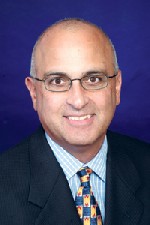 |
Q: In 2001, optometry associations in Florida and Missouri had to fight legislation that would have severely limited comanagement. The bills in both states were defeated, so it seemed like a dead issue. Now, I hear that O.D.s in Georgia had to defend themselves against similar legislation. Whats going on?
A: Comanagement is very fragile. Dont forget that optometry is a legislated profession, and comanagement could be legislated away in a snap.
Here in Georgia, the state ophthalmology society encouraged legislators to propose a bill (S.B. 587) that would have seriously restricted optometric comanagement of surgical patients.
The spin on the legislation was that it was intended for the education of the public to understand the roles of the ophthalmologist and the optometrist, says Georgianne Bearden, executive director of the Georgia Optometric Association. But comanagement between optometrists and ophthalmologists has existed for decades with no public outcry.
The bill says a surgeon may delegate the responsibility for the first 48 hours of postoperative care for a patient by entering into a comanagement agreement with an ophthalmologist or optometrist to provide such postoperative care.
That makes it sound like the optometrist is comanaging the surgeons patient, not the other way around, Ms. Bearden says.
The bill also states that comanagement is permitted only if traveling to the surgeon would be an unreasonable hardship for the patient or if the surgeon is unavailable due to illness, travel, etc. Even then, comanagement could only occur if the surgeon confirms that the person to whom the care is delegated is qualified to treat the patient during the postoperative period.
Also, patients must sign a written statement consenting to the comanagement agreement and acknowledging that the details of the agreement have been explained. Specifically, the proposed bill stipulated that the statement include the financial details about how the surgical fee will be divided between the surgeon and the person who provides the postoperative care and notice that, notwithstanding the delegation of care, the patient may receive postoperative care from the surgeon at the patients request without the payment of additional fees.
Thats misleading, says Ms. Bearden. [The agreement] says that the patients must know that the optometrist will receive a fee for treating them. But if the patient stays with the ophthalmologist, there is no fee, she says. It makes the division of the global fee appear to be an extra benefit for the optometrist.
The bill included other requirements, such as prohibiting an agreement:
In which patients return to the referring doctor on a fixed date or as a matter of routine policy.
That is based on inducing surgical referrals or on economic considerations affecting the surgeon.
In which the referring doctor provides the postoperative care on the condition of making referrals to the surgeon.
But optometrists comply with these requirements already, Ms. Bearden says. Similar arrangements between other doctorscardiologists and cardiac surgeons, dentists and oral surgeonsdo not have this legislation. If this is truly a patient information issue, why arent these doctors included?
In mid-March, when the Georgia Optometric Association raised this and other questions to the senator who introduced the bill, the senator withdrew it.
But its not over yet. The senator promised to re-introduce the legislation next year.
Meanwhile, we optometrists in Georgia plan to speak to every legislator about this issue once the session ends. Keeping optometry strong requires political involvement. Dont forget to contribute regularly to your state political action committee.
Also, get to know your state senators and representatives. Get them in your exam chair. Show them your ability and the care you provide. It works!
For example, we currently have a scope expansion bill under consideration. When we approached one senator about the bill, she immediately said she supported it.
Why? Because her own optometrist had already told her all about it.

